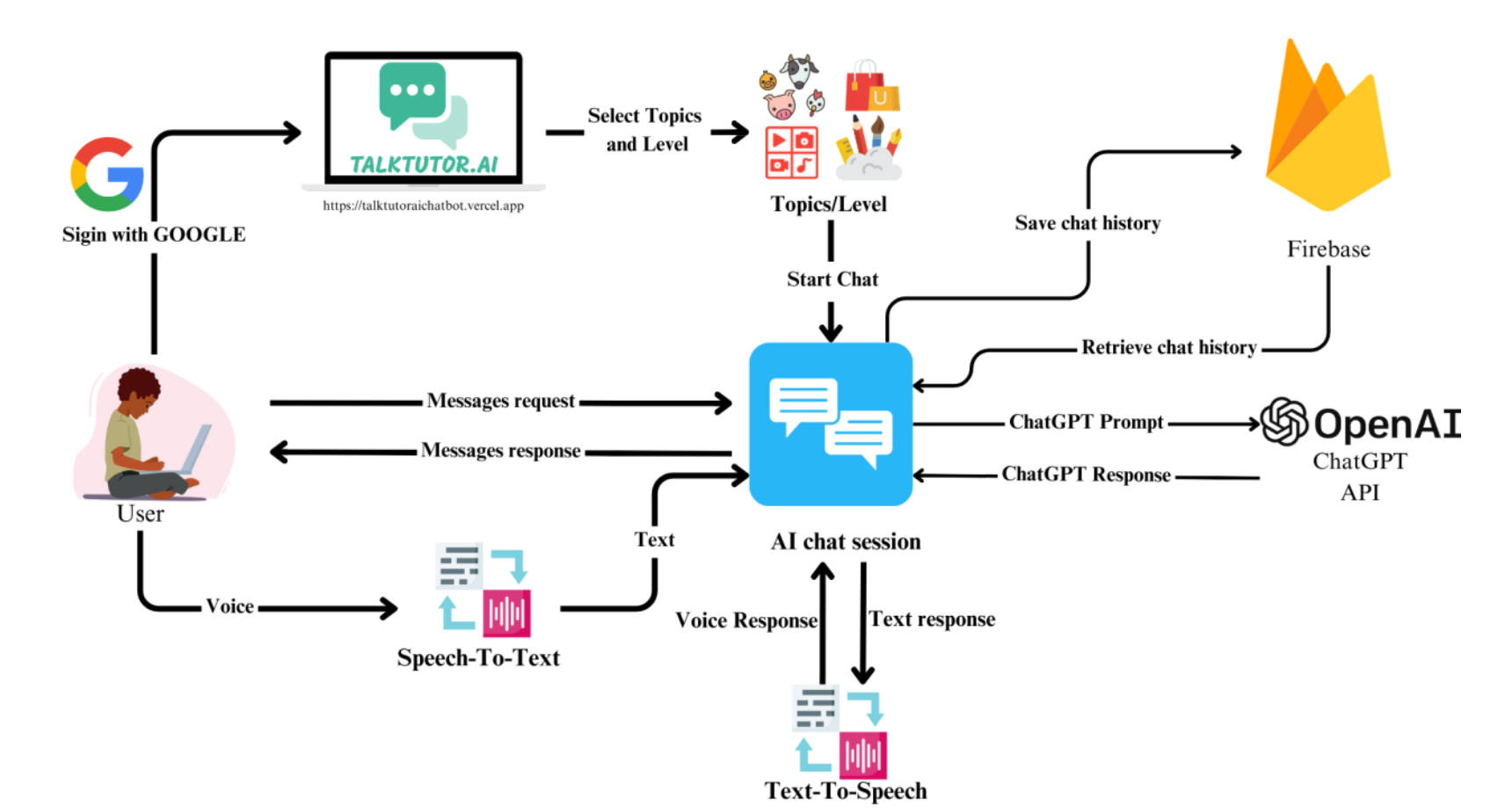TalkTutorAI: Empowering English Language Proficiency through ChatGPT-Assisted Conversational Practice – A Case Study at Ubon Ratchathani Rajabhat University, Thailand
Main Article Content
Abstract
The significance of English as a global language is of growing importance in Thailand, especially in education sectors. However, Thai students often face significant challenges in getting conversational English proficiency. Furthermore, Thailand is classified as a non-English proficient country, showing surprisingly low proficiency levels in English, especially in conversational aspects. Hence, the primary objective of this research is to develop TalkTutorAI, a web application AI chatbot that leverages ChatGPT. TalkTutorAI was designed to positively affect Thai learners by providing a platform to enhance and practice their English language skills efficiently, with the assistance of a powerful AI teacher like ChatGPT. This study employs a design science research approach to address real-world challenges commonly met by Thai learners. The assessment of TalkTutorAI involved 116 student participants from diverse faculties at Ubon Ratchathani Rajabhat University. The evaluation incorporated both testing and survey responses from students, focusing on key factors including user experience, language learning efficiency, content relevance, and overall satisfaction. The results showed a commendable high level of satisfaction with TalkTutorAI, as indicated by an overall experience mean score of 3.82 out of 5, demonstrating a positive reception among participants. Users particularly commended the system for its user-friendly interface and convenience. However, some users suggested improvements, such as enhancing response speed, improving language translation capabilities, and fostering more captivating and human-like interactions. This study suggests that AI chatbots can effectively facilitate English conversation teaching. Furthermore, the findings create a platform for future academic inquiries in this burgeoning domain.
Article Details

This work is licensed under a Creative Commons Attribution-NonCommercial-NoDerivatives 4.0 International License.
All authors need to complete copyright transfer to Journal of Applied Informatics and Technology prior to publication. For more details click this link: https://ph01.tci-thaijo.org/index.php/jait/copyrightlicense
References
EF Education First. (2023). EF English Proficiency Index – Thailand. Retrieved 1 October 2023. Retrieved from https://www.ef.com/wwen/epi/regions/asia/thailand/
Gregor, S. & Hevner, A. R. (2013). Positioning and presenting design science research for maximum impact. MIS quarterly, 37(2), 337-355 . http://dx.doi.org/10.25300/MISQ/2013/37.2.01
Hevner, A. R., March, S. T., Park, J., & Ram, S. (2004). Design science in information systems research. MIS quarterly, 28(1), 75-105. https://doi.org/10.2307/25148625
Juhana, J. (2012). Psychological factors that hinder students from speaking in english class (A case study in a senior high school in South Tangerang, Banten, Indonesia). Journal of Education and Practice, 3, 100-110. https://www.iiste.org/Journals/index.php/JEP/article/view/2887
Peffers, K., Tuunanen, T., Rothenberger, M. A., & Chatterjee, S. (2007). A design science research methodology for information systems research. Journal of management information systems, 24(3), 45-77. https://doi.org/10.2753/MIS0742-1222240302
Sakai, N. (2023). Investigating the feasibility of ChatGPT for personalized English language learning: A case study on its applicability to Japanese students. https://doi.org/10.31219/osf.io/cv9f2
Sasum, S. & Weeks, B. (2018). Why some Thai students cannot speak English fluently? In Proceeding of the 3rd RSU National and International Research Conference (pp. 361–367), Rangsit University, Thailand. https://rsucon.rsu.ac.th/files/proceedings/inter2018/G4-IN18-021.pdf
Schmidt-Fajlik, R. (2023). ChatGPT as a grammar checker for Japanese english language learners: A comparison with grammarly and ProWritingAid.
AsiaCALL Online Journal, 14(1), 105–119. https://doi.org/10.54855/acoj.231417
Teng, B. & Sinwongsuwat, K. (2015). Improving English conversation skill through explicit CA-informed instruction: A study of Thai university students. PASAA Paritat Journal, 30, 65-104. https://www.culi.chula.ac.th/Images/asset/pasaa_paritat_journal/file-10-99-iokf5s624691.pdf
Tipayavaravan, N., Sirichokcharoenkun, Y., & Cao, L. (2023). ChatGPT: A new tool for English language teaching and learning at Vietnamese high schools. https://doi.org/10.35542/osf.io/m7k4y
Thu, C. H., Bang, H. C., & Cao, L. (2023). Integrating ChatGPT into Online Education System in Vietnam: Opportunities and Challenges. http://dx.doi.org/10.35542/osf.io/hqyut
Uyun, A. S. (2023). Teaching English speaking strategies. Journal of English Language Learning (JELL), 6(1), 14-23. https://doi.org/10.31949/jell.v6i1.2475
Yin, R. K. (2002). Case Study Research Design and Method. Thousand Oask, California: SAGE.
Young, J. C. & Shishido, M. (2023). Investigating OpenAI’s
ChatGPT potentials in generating chatbot’s dialogue for English as a foreign language learning. International Journal of Advanced Computer Science and Applications, 14(6). https://dx.doi.org/10.14569/IJACSA.2023.0140607






